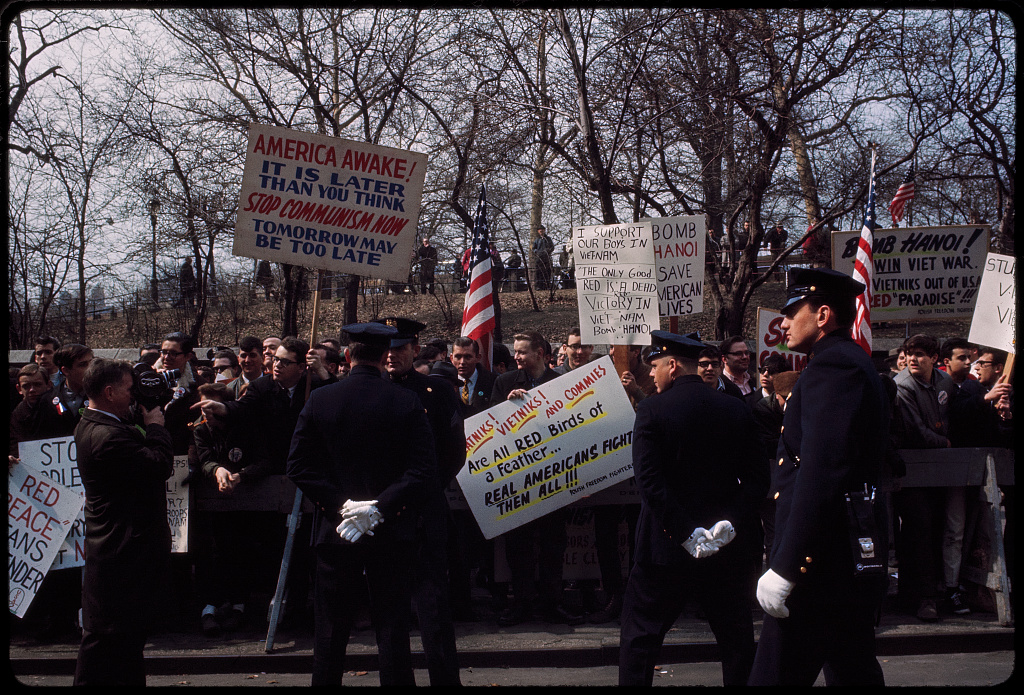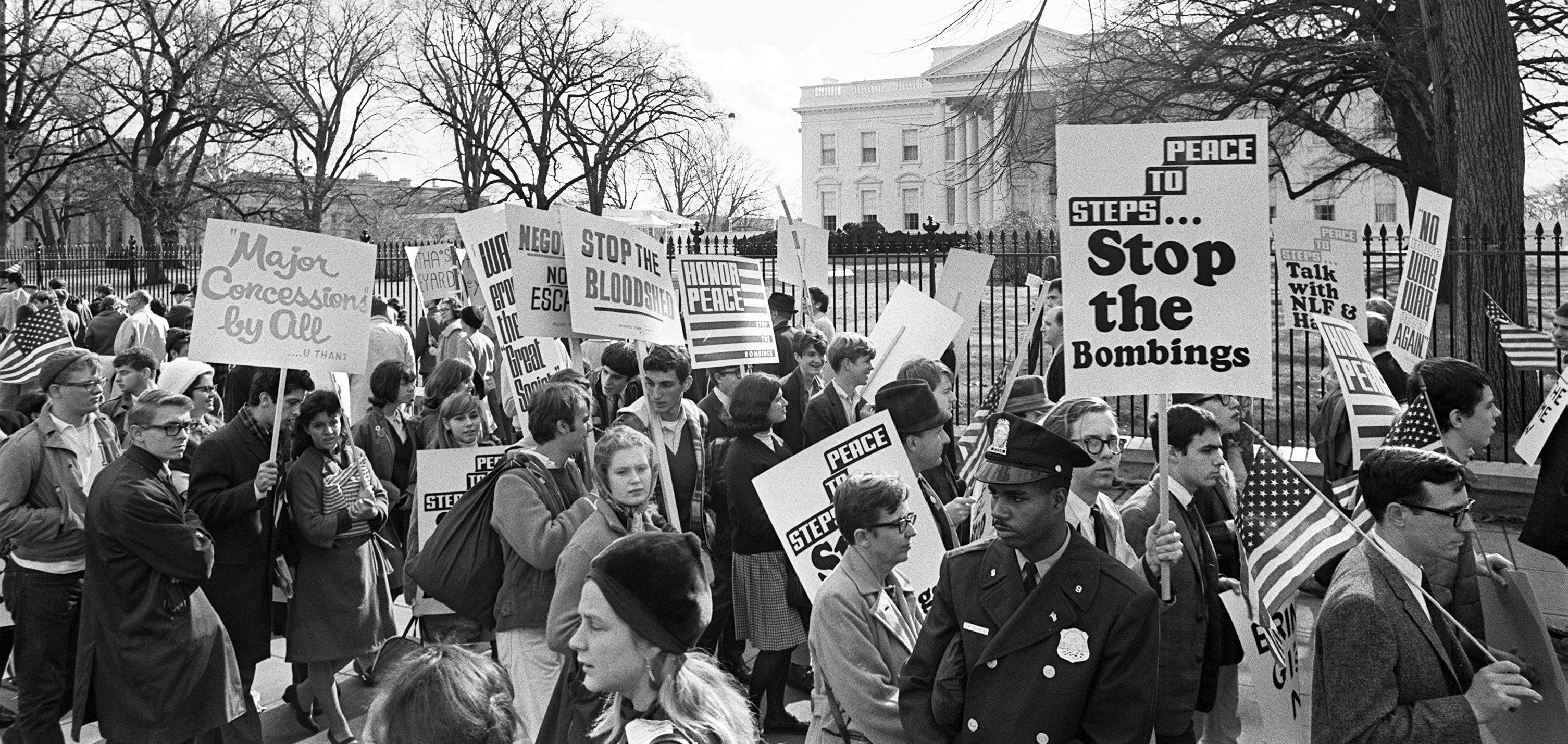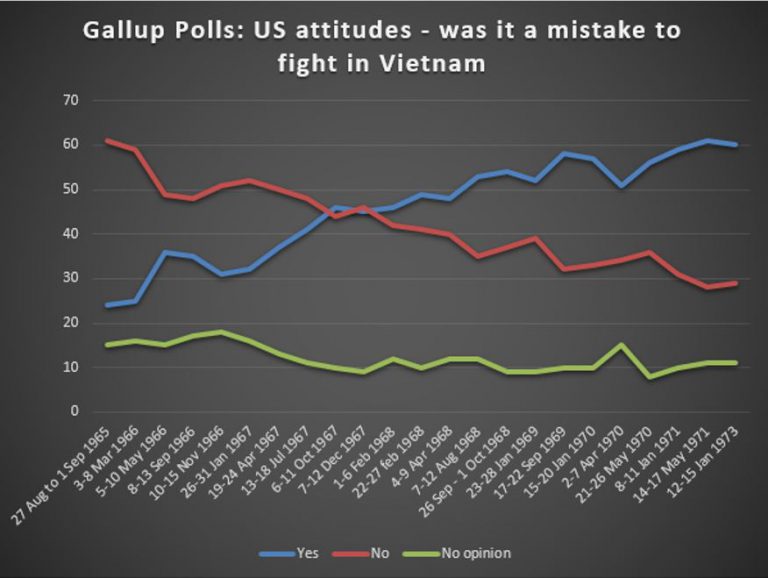My Lai: The Massacre that Changed the Course of the Vietnam War
Anti-war Movements
In the late 1950s and early 60s, the general public wasn’t well informed of the conditions of the war and were mostly rooting for a U.S victory.

Pro-war Demonstration, 1967.
Image courtesy of the Library of Congress
Later, due to the exposure of the realities of the war through journalism, tides turned in New York and it slowly became an anti-war city.
"My son was KILLED in Vietnam. What for? America" ~Anti-war Protest Chant

Anti-war protest at the White House
Image courtesy of the United States War College
"The bombs in Vietnam explode at home; they destroy the hopes and possibilities of a decent America."
~ Martin Luther King Jr.
"Television brought the brutality of the war into the comfort of the living room. Vietnam was lost in the living rooms of America-- Not in the battle fields of Vietnam."
~ Marshall Mcluhan
American Perspective

Graph courtesy of the Gallup Polls
Polls taken between 1965-1973 showed the percentage of people disapproving of the war after Hersh's 1969 article steadily grew.